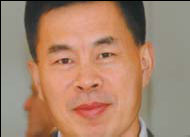Obama, Romney bid to win via new media
World report | Chen Weihua in Charlotte, North Carolina

The big screen near the entrance of the Charlotte Convention Center greets delegates and journalists with "Welcome to the Democratic National Convention" - and adds, "Follow us on #DNC2012."
That is only one of the Twitter accounts and other new media platforms used by US President Barack Obama's campaign to communicate with and fire up supporters.
Obama, whose 2008 campaign got a boost from new media, is clearly counting on more help from new media to win re-election on Nov 6 against Republican candidate Mitt Romney.
Ben LaBolt, national press secretary of the Obama campaign, known as Obama for America, said digital platforms have changed the nature and cycle of news and political campaigns.
"There have been more tweets (from Barack Obama's Twitter account) in this past week than in the entire election cycle of 2008," he said on Monday at a seminar on politics and the media in the 2012 election campaign held by Bloomberg in Charlotte's EpiCenter, just blocks from the Bank of America Stadium, where Obama will deliver his acceptance speech on Thursday night.
In 2008, the two political parties' conventions drew altogether 365,000 tweets, but the tweets for the GOP convention last week alone hit 5 million.
There is strong interest in and demand for political content, said Olivia Ma, YouTube news manager. "You have seen huge demand for political content since the presidential campaign began," she said.
Ma said Clint Eastwood's speech on the last night of the Republican convention - in which he talked to an empty chair that was supposed to be Obama - was the most searched video on YouTube just one hour after the talk. The video had millions of views over the weekend and the number is still rising. The GOP convention video on YouTube had received more than 3.3 million views as of Monday.
New media have increasingly become the source for news, especially among the younger generation, according to the latest national poll conducted by the University of Southern California Annenberg School and the Los Angeles Times.
The study finds that while most voters still rely on local television for their daily news, about one in four voters say they get news daily from Facebook. This gives the social networking site a larger direct daily reach than most cable news networks.
The survey finds a much larger percentage of young people rely on Facebook, tablets, smartphones and other new media tools for news.
According to a Pew Center study released last month, Obama holds a substantial lead over Romney in the use of these new communication tools.
The study finds the Obama campaign posted nearly four times as many messages as the Romney campaign and was active on nearly twice as many platforms, but it acknowledged that the Romney campaign has also taken major steps to close the digital gap.
The creation of many Romney apps, for example, is widely regarded as major progress. Experts said some apps have features that bring voters together and make the development and management of their street teams easier.
But the Pew Center survey points out that the differences with 2008 go beyond candidates adding social media channels. It said the Obama campaign has also significantly localized its digital messaging, adding state-by-state content pages filled with information. Its website no longer has a "news" section with recent media reports. The only news of the day comes directly from the Obama campaign itself.
On the other hand, the Romney website has a page of reports from the mainstream news media.
With only two months to go before the widely regarded close election, no one seems to know whether Obama will prevail again thanks to the help of new media.
Contact the writer at chenweihua@chinadaily.com.cn


















